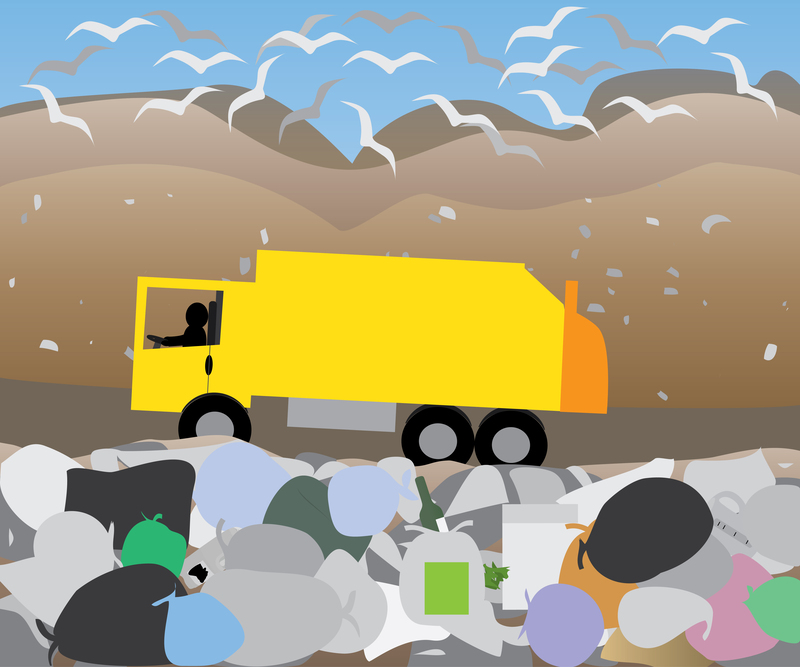Smart Choices for the End-of-Life Handling of Cookware
Cookware is an essential part of every kitchen, supporting our daily routines and culinary adventures. However, like all things, pots, pans, and bakeware eventually reach the end of their service. Disposing of or replacing cookware can feel daunting in today's eco-conscious age, where responsible waste management and sustainability are more important than ever. In this detailed guide, we'll explore the smartest options for the end-of-life handling of cookware, ensuring your decisions reduce environmental impact while benefiting your community and even your wallet.
Understanding When Cookware Has Reached Its End
Before diving into ways to handle old cookware, it's important to establish when cookware is truly at the end of its useful life. Replacing items prematurely can waste resources, while holding on to unsafe cookware can hinder your cooking and potentially pose health risks.
Signs Your Cookware Needs Replacement
- Warped or Damaged Surfaces: Severely warped pots and pans do not sit evenly on stovetops, leading to inefficient cooking.
- Scratched or Flaking Nonstick Coatings: Peeling or scratched Teflon and other nonstick coatings can release toxins or flakes into food.
- Corrosion or Rust: Visible rust, especially on cast iron not meant for restoration, indicates significant wear.
- Brittle or Cracked Handles: Damaged handles are a sign of reduced safety and call for replacement.
- Broken Lids or Incomplete Sets: Missing crucial components may make the cookware impractical.
When any of these issues arise--especially for safety or health reasons--it's time to consider the best ways to dispose of or repurpose your cookware.

How to Responsibly Manage Old Cookware
Most people mistakenly toss unwanted cookware straight into the garbage, but there are smart, eco-friendly alternatives that contribute to sustainability goals. Here's how you can make a real difference when your kitchenware reaches the end of its journey.
1. Recycle Cookware: Give Metals a Second Life
Recycling cookware is one of the best environmental choices, especially for products made from metals like aluminum, stainless steel, or cast iron. Metal recycling preserves valuable resources and reduces landfill waste.
- Check Local Guidelines: Contact local recycling centers to confirm if they accept cookware. Many municipal or scrap yards accept pans if all plastic parts (like handles and knobs) are removed.
- Prepare the Cookware: Remove non-metal components or coatings unless the facility can process them.
- Drop-Off or Schedule Pick-Up: Deliver items directly to a scrap metal recycler or use mail-back programs (some kitchen brands offer these).
Tip: Not all nonstick-coated pans can be recycled due to the chemicals used in their surface treatment. Always check with your recycling facility first.
2. Upcycle and Repurpose
Instead of sending worn cookware to the landfill, think creatively! Upcycling transforms old pots and pans into functional or decorative items around your home or garden.
- Planters: Turn deep pots or colanders into quirky plant containers; just ensure drainage holes are present.
- Wall Art: Mount vintage pans on your kitchen wall for a rustic design touch.
- Storage Solutions: Use old skillets for organizing small items like keys, mail, or tools in your entryway or garage.
- Bird Feeders: Convert lids or shallow pans into outdoor bird feeders.
Upcycling not only extends the life of your cookware but also adds a unique, sustainable flair to your living space.
3. Donate Usable Cookware
If your cookware is still functional--no peeling surfaces, secure handles, and complete with lids--consider donation as a responsible end-of-life choice. Many people starting new homes or non-profit organizations--like shelters or community kitchens--welcome gently used kitchenware.
- Charity Thrift Stores: Organizations like Goodwill or the Salvation Army often accept clean, complete sets.
- Homeless or Domestic Violence Shelters: Contact local shelters to see if there is a need for durable, safe cookware.
- Community Centers: Educational cooking programs may benefit from your donation.
Remember: Only donate items in safe, usable condition. Avoid donating severely scratched, damaged, or heavily worn cookware.
Sustainable Cookware Choices for Future Purchases
An integral part of smart end-of-life handling is making sustainable choices when purchasing new cookware. Consider these tips to reduce future waste and improve the lifecycle of your kitchen equipment.
Choose Durable Materials
When selecting new cookware, opt for long-lasting materials like stainless steel, cast iron, or copper. These can frequently be restored or recycled, making them superior in terms of end-of-life handling.
Prioritize Recyclability
- Stainless Steel and Aluminum: Highly recyclable and accepted by most scrap yards.
- Cast Iron: Exceptionally durable and can be refurbished repeatedly.
- Glass Bakeware: Often recyclable with glass but check local recycling regulations.
Avoid cookware with excessive coatings or mixed materials (like core-plastic handles bonded to metal pans), as these are hard to recycle or refurbish.
Support Take-Back and Recycling Programs
Many cookware brands now offer take-back initiatives or replacement guarantees:
- Mail-in Recycling: Send old cookware to specific manufacturers for responsible recycling or refurbishment.
- Trade-In Discounts: Some companies provide discounts on new items when you return worn kitchenware.
Choosing manufacturers that facilitate responsible end-of-life disposal makes your whole cookware lifecycle more sustainable.
Common Cookware Materials and Their Disposal Methods
Each cookware material has unique challenges and opportunities for sustainable end-of-life handling:
Stainless Steel
- 100% Recyclable: Accepted at nearly all scrap metal facilities.
- Easy to Donate: If in good condition, lasts virtually forever.
Aluminum
- Lightweight and Valuable for Recycling: Remove plastic handles before recycling.
- Not Always Accepted with Nonstick Coating: Verify with your recycler.
Cast Iron
- Restore, Don't Toss: Cast iron can often be re-seasoned and reused for generations.
- Recycle if Broken: If cracked beyond repair, scrap yards will accept the metal.
Nonstick/Teflon Pans
- Challenging to Recycle: Most facilities will not accept Teflon due to chemical coatings.
- Upcycling Preferred: Try to repurpose as planters or storage unless the coating is flaking.
Glass and Ceramic Bakeware
- Usually Not Recyclable with Common Glass: Due to different melting points, check with dedicated reuse centers.
- Donation or Upcycling: Well-suited for creative household uses if undamaged.
What Not to Do When Disposing of Cookware
- Do Not Trash Recyclable Metals: Landfilling valuable metals is wasteful and environmentally damaging.
- Don't Burn Nonstick Pans: Burning releases toxic fumes. Always handle nonstick with care.
- Avoid Illicit Dumping: Never discard cookware in nature or unauthorized locations.
Making the right choices for end-of-life cookware handling protects natural resources and supports a healthier planet.

Frequently Asked Questions About Cookware Recycling and Disposal
Can I put old pots and pans in my curbside recycling bin?
Usually, no. Most municipal recycling programs do not accept cookware in regular curbside bins. Cookware typically needs to go to specialized metal recyclers or scrap yards.
Is it safe to donate used nonstick pans?
Only donate nonstick pans that are in good condition with an intact, unscratched surface. Never donate cookware with flaking coating or that shows significant wear.
What should I do with broken glass or ceramic bakeware?
If your glass or ceramic is broken, wrap it securely and dispose of it in the trash, as it is generally not recyclable. Intact items might be accepted at reuse centers or by creative upcyclers.
How can I find cookware recycling or donation centers near me?
Search online for local "scrap metal recycler" or "kitchenware donation near me." Contact your city's waste management office for specific instructions and facility information.
Conclusion: Making Smart, Sustainable Choices for Cookware Disposal
Cookware sustains countless meals and memories in our homes, but when it's time to replace, make the end of its life as meaningful and eco-friendly as possible. Whether you're recycling, donating, upcycling, or supporting sustainable brands, each smart choice minimizes waste and supports a circular economy. Let's all strive for greener kitchens and a better planet by handling the end-of-life of our cookware responsibly and creatively.
Want to learn more about sustainable kitchen practices or eco-friendly home hacks? Stay tuned for more tips and guides on responsible living!